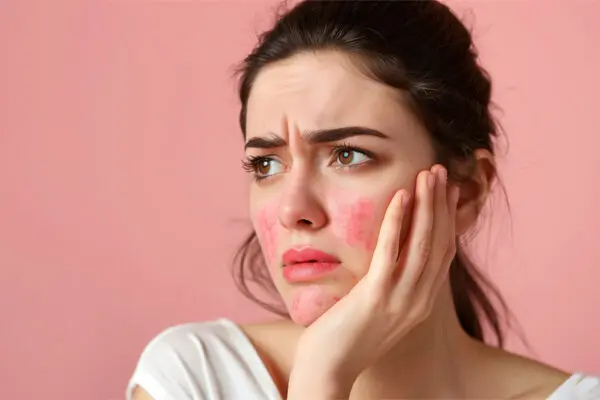- HOME
- ABOUT
- TREATMENTS
- BEFORE AND AFTER
- BLOG
- BOOK AN APPOINTMENT
- CONTACT
Skin rashes are a common condition that can affect anyone, regardless of age or gender. They manifest as red, inflamed, or irritated patches of skin and may be accompanied by itching, swelling, or discomfort. Though most skin rashes are not life-threatening, they can cause significant discomfort and frustration. Understanding the causes of skin rashes and how to prevent them is essential for maintaining healthy, irritation-free skin. In this article, we will explore the various triggers of skin rashes and effective ways to prevent their occurrence.

Allergic Reactions
One of the most common causes of skin rashes is an allergic reaction. The skin may react to allergens such as pollen, pet dander, or certain foods. When the immune system identifies these substances as threats, it releases chemicals like histamines, which cause the skin to break out in hives or rashes.
Contact dermatitis is a form of allergic reaction that occurs when the skin comes into direct contact with an allergen. Common allergens include:
Skin infections caused by bacteria, fungi, or viruses can result in rashes. Fungal infections, such as athlete's foot or ringworm, are common causes of rashes in warm, moist areas of the body. Bacterial infections like impetigo, often seen in children, can also lead to red sores and blisters on the skin.
Viral infections, such as chickenpox, measles, or herpes, can also cause skin rashes. These rashes are typically accompanied by other symptoms like fever or fatigue.
Heat rashes occur when sweat gets trapped in the skin’s pores, leading to irritation and the formation of small red bumps. This condition, known as miliaria or prickly heat, is common in hot, humid climates or during intense physical activity. Babies and young children are particularly susceptible to heat rashes because their sweat glands are not fully developed.
Eczema is a chronic skin condition characterized by dry, itchy, and inflamed skin. The exact cause of eczema is not known, but it is believed to result from a combination of genetic and environmental factors. Flare-ups can be triggered by:
Eczema is often seen in infants and children but can continue into adulthood. The condition tends to be chronic, with periods of remission and exacerbation.
Psoriasis is an autoimmune condition that causes skin cells to multiply rapidly, leading to the formation of red, scaly patches. These patches, or plaques, often appear on the scalp, elbows, knees, and lower back. While the exact cause of psoriasis is not fully understood, it is believed to be related to genetic and immune system factors.
Certain medications can cause skin rashes as a side effect. These reactions, known as drug rashes, can range from mild to severe and may include symptoms like hives, swelling, or peeling of the skin. Medications that are commonly associated with drug rashes include:
In some cases, drug rashes may be accompanied by more serious symptoms, such as difficulty breathing, in which case immediate medical attention is necessary.
Preventing skin rashes requires understanding your body’s sensitivities and taking appropriate measures to protect your skin. Here are some tips for preventing the most common types of rashes:
If you are prone to allergic reactions, it’s important to identify and avoid substances that trigger your skin irritation. This may involve switching to hypoallergenic skincare products, using fragrance-free detergents, and wearing jewelry made of non-irritating materials, like stainless steel or platinum. Conducting a patch test on a small area of skin before trying a new product can help prevent allergic rashes.
Good hygiene is key to preventing skin infections that can lead to rashes. Showering regularly, particularly after exercising, helps remove sweat, bacteria, and other irritants from the skin. Make sure to dry your skin thoroughly, especially in areas that are prone to moisture buildup, such as underarms and groin.
To prevent heat rashes, opt for loose-fitting, breathable clothing made of natural fabrics like cotton. These materials allow the skin to breathe and reduce sweat buildup. During hot weather or physical activity, taking breaks to cool down can also help prevent rashes caused by overheating.
Keeping your skin hydrated can help prevent eczema flare-ups and other rashes caused by dry skin. Use a fragrance-free moisturizer to lock in moisture, especially after bathing. For individuals with eczema, it may be helpful to use thicker ointments or creams that provide more intensive hydration.
Stress is a known trigger for many types of skin rashes, including eczema and psoriasis. Practicing relaxation techniques, such as meditation, yoga, or deep breathing, can help reduce stress levels and prevent rash flare-ups. Ensuring you get adequate rest and maintain a healthy lifestyle can also have a positive impact on your skin health.
If you experience frequent or persistent rashes, it’s important to consult Dr Sheenam, a dermatologist. A professional can help you identify the underlying cause of your skin rash and recommend appropriate treatment or preventive measures. In some cases, prescription medications, such as corticosteroids or antihistamines, may be necessary to manage severe rashes.
Skin rashes are a common but often preventable condition. Understanding the various causes of rashes—from allergic reactions and infections to heat and chronic conditions like eczema—can help you take steps to protect your skin. By adopting good skincare practices, managing stress, and seeking professional advice when needed, you can reduce the risk of developing skin rashes and maintain healthy, irritation-free skin.
Please fill up the Form below so that we can get
in touch with you at the earliest.

Call us:
+91-90416-25252
Visit Clinic:
Dr. Sheenam's Skin, Hair & Laser Clinic
# 1, Sector 21 - D
Chandigarh
Email:
drsheenamskinclinic@gmail.com